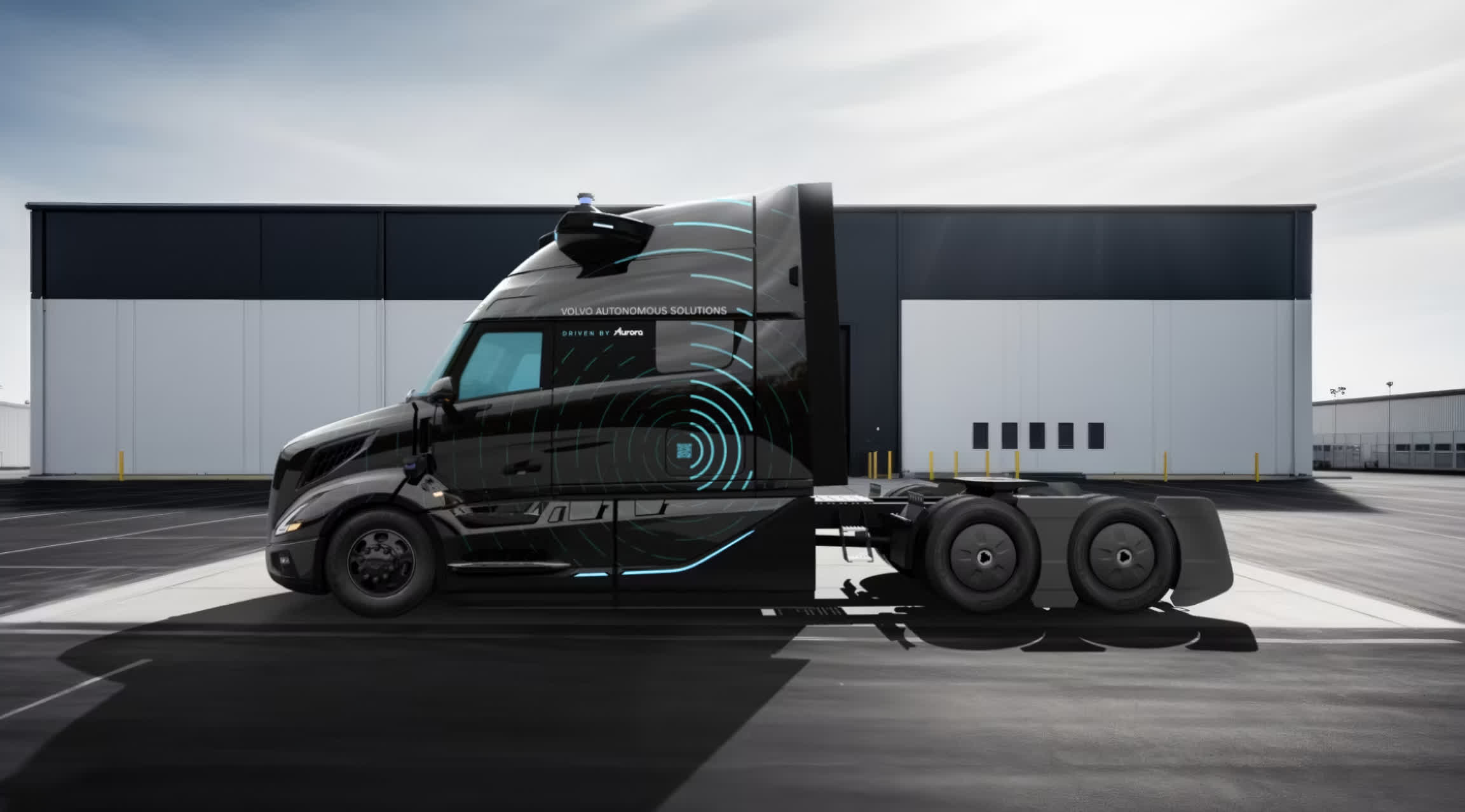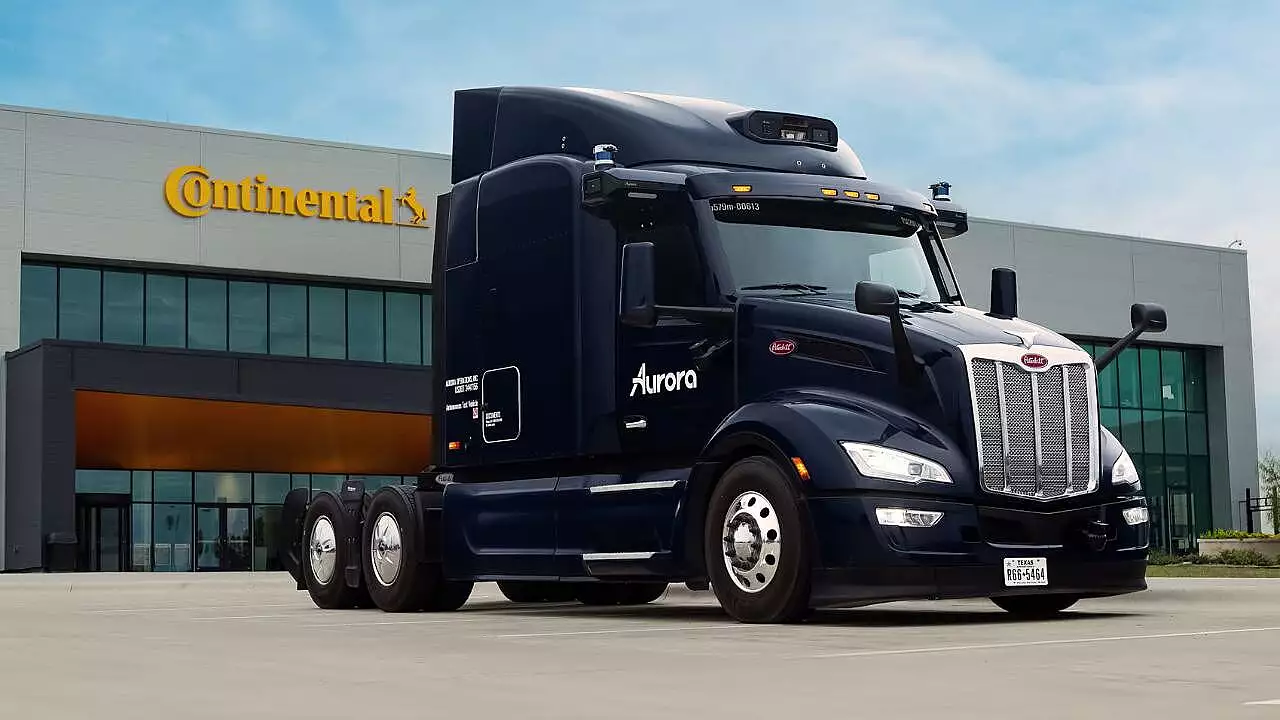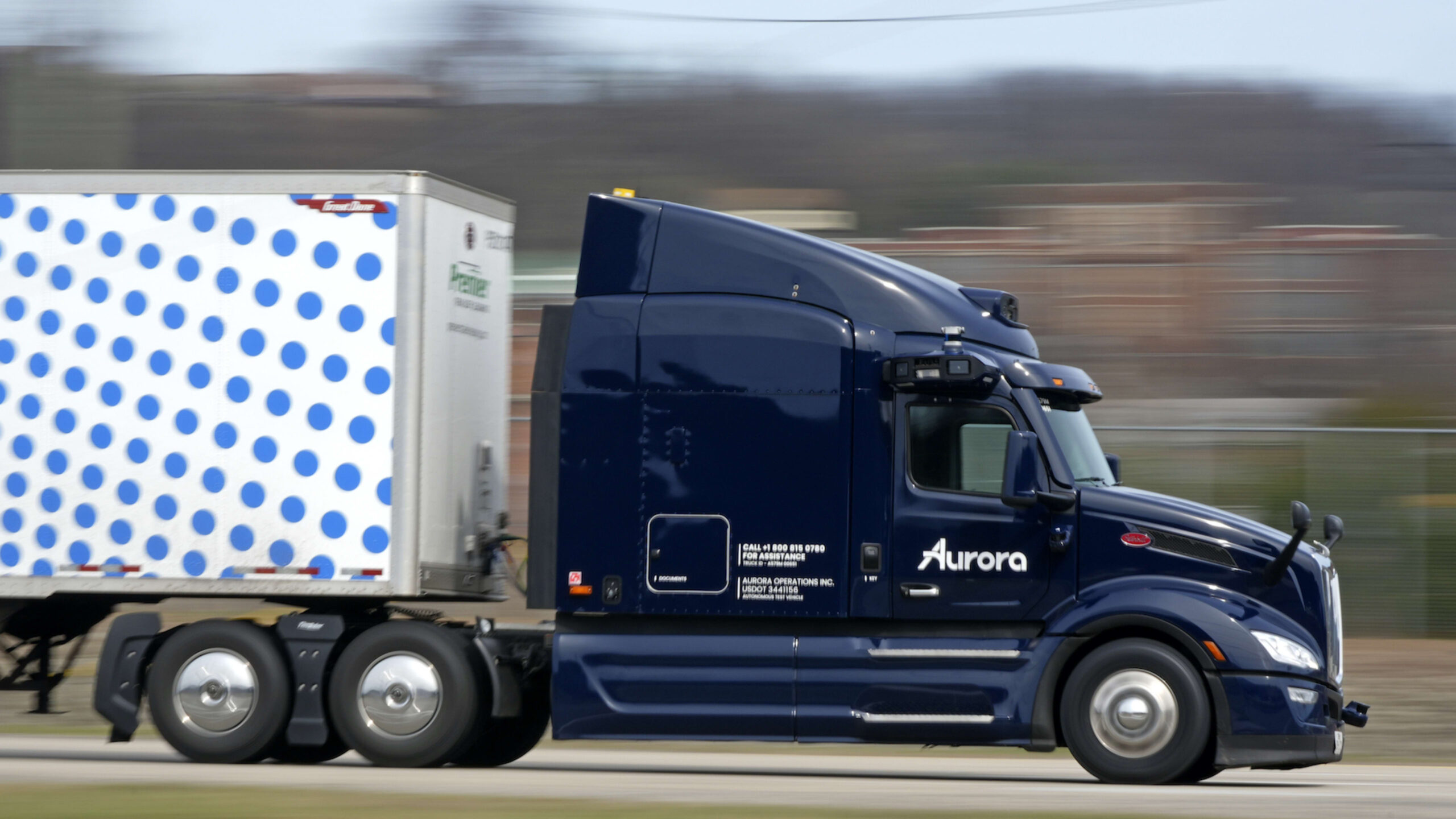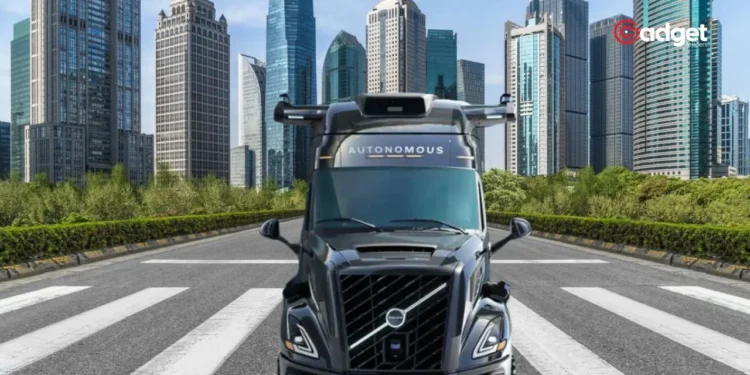In a groundbreaking collaboration, Volvo and Aurora are setting the stage for a transformative shift in the transportation industry with the introduction of a “production-ready” autonomous semi-truck. This venture not only marks a monumental step in automotive innovation but also signals a strategic push toward the mass production of self-driving vehicles.

Strategic Synergy: The Volvo-Aurora Partnership
Volvo, renowned for its robust presence in the commercial vehicle market, has strategically aligned with Aurora, a leading force in autonomous driving technology spearheaded by industry veterans from Google, Uber, and Tesla.
Together, they have developed the Volvo VNL Autonomous, a vehicle that epitomizes the synergy between Volvo’s extensive experience in vehicle manufacturing and Aurora’s cutting-edge autonomous technology.
The unveiling of this semi-truck is not merely a product launch but a bold move toward reshaping the logistics and transport landscape. The significant investments in autonomous vehicle (AV) technology by both companies highlight a shared vision that leverages innovative design specifically for large-scale autonomous truck manufacturing.

A Vision Materialized: Manufacturing and Milestones
Set to commence manufacturing at Volvo’s New River Valley plant in Dublin, Virginia—Volvo’s largest facility globally—this initiative reflects the company’s commitment to leading the charge in the AV sector. Since 2018, Volvo and Aurora have conducted rigorous public road tests, accumulating over 1.5 million miles of data on commercial routes, a testament to their dedication to safety and efficiency in autonomous trucking.
Expanding Horizons: Aurora’s Ambitious Roadmap
Aurora is not resting on its laurels with just this partnership. The company has announced ambitious plans to deploy a fleet of 20 fully autonomous trucks within the current year. This initial rollout is part of a broader strategy to revolutionize transport through innovative technology, with future plans to extend these services to other business sectors. Furthermore, Aurora’s collaboration with German automotive giant Continental aims to facilitate a large-scale deployment of driverless trucks by 2027.
Overcoming Challenges: The Road Ahead for Autonomous Trucks
Despite the promise of autonomous trucks leading the charge toward mass adoption, the road has been fraught with challenges. Several firms have shuttered, while others have dialed back their ambitions amid extended timelines and reduced funding. Nonetheless, a cadre of automakers, including Volvo and Aurora, remain steadfast in their goals, underscored by firm deployment timelines.
Public sentiment on autonomous vehicles has waned somewhat, influenced by high-profile missteps from companies like Tesla and Cruise. However, Aurora has successfully navigated these turbulent waters, maintaining a clear record and avoiding the intense scrutiny that has beset some of its competitors.
In the face of these hurdles, Aurora has reported a net loss of $165 million in the first quarter of 2024, which, while significant, marks a 16% improvement over the previous year, signaling a cautious but optimistic trajectory towards profitability and success in the autonomous trucking industry.

Conclusion: A New Era on the Horizon
As Volvo and Aurora drive forward with their autonomous semi-truck, they are not just launching a new vehicle; they are pioneering a new era in transportation. With continued innovation, strategic partnerships, and a clear vision for the future, the journey towards autonomous trucking continues to unfold, promising a revolution on the highways that will redefine logistics and transportation in the years to come.










